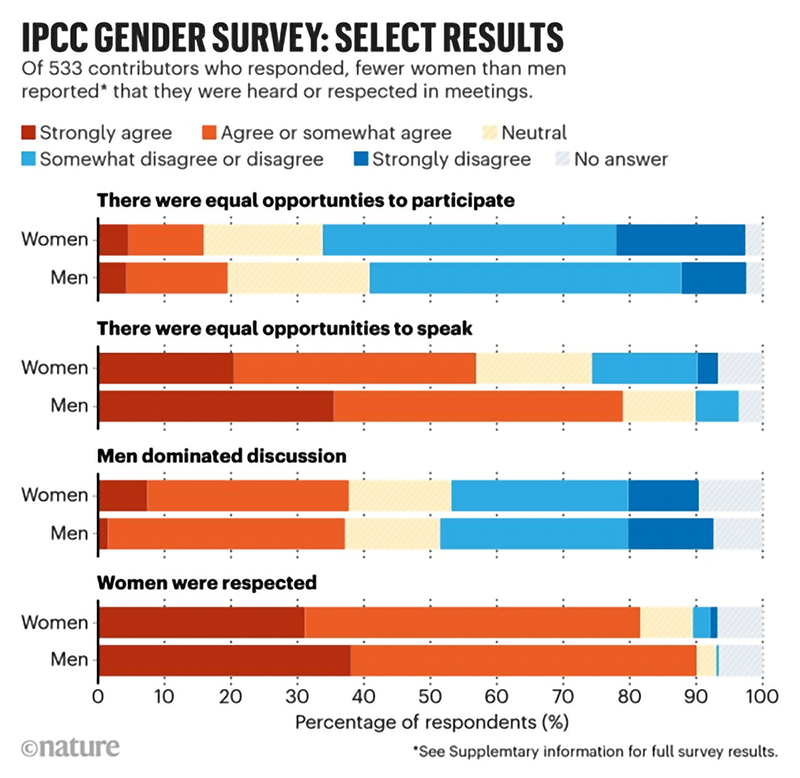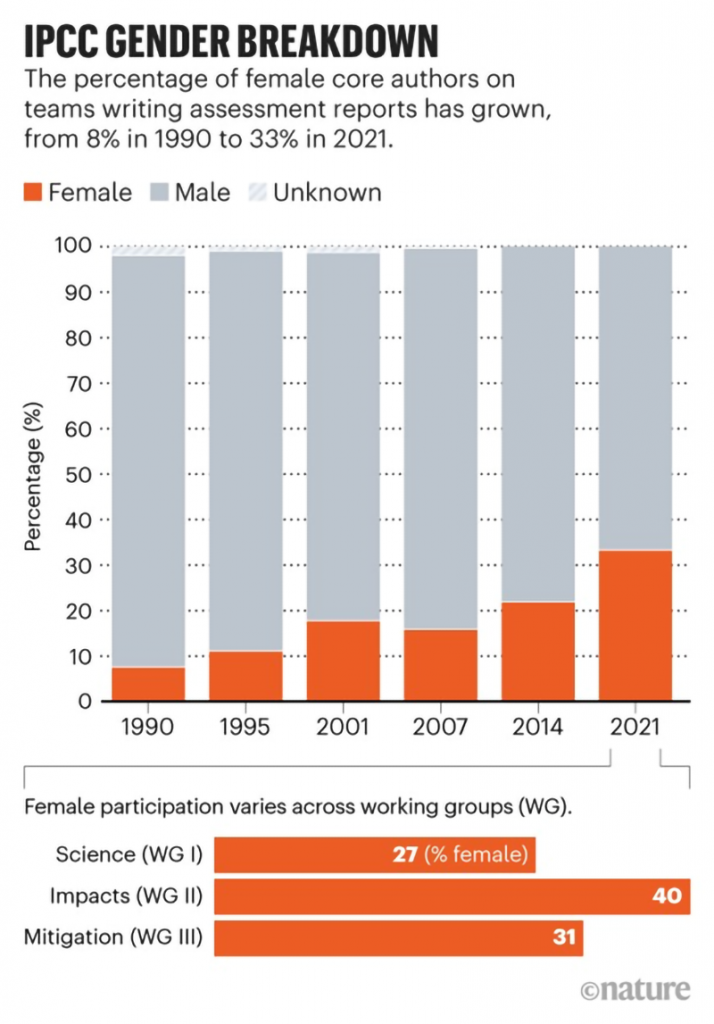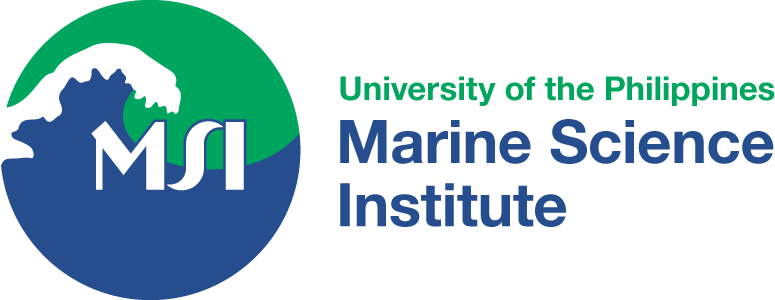Survey of gender bias in the IPCC
Summary
In 2018, the IPCC established the Task Group on Gender to compile a report and make recommendations. A survey sent to contributors revealed some positive trends — from just 8% of authors in the first assessment report in 1990, women now constitute about 30% of researchers worldwide, but still have lower representation at senior levels. Women are best represented in Working Group II, which covers climate impacts, adaptation and vulnerability and draws on the ecological and social sciences. They are less represented in the groups that focus on the physical sciences (I) or mitigation (III). Moreover, more than one-third of respondents (men and women) perceived that male scientists dominate discussions and writing. More women than men reported that they had observed someone else take credit for a woman’s idea (38% versus 24%), or had seen a woman being ignored (52% versus 30%) or patronized (41% versus 27%). Several respondents reported seeing themselves or colleagues be brushed aside owing to a lack of fluency in English, or to youth, race, gender or being from developing countries. Worryingly, some women had experienced (8%) or observed (11.5%) sexual harassment while working with the IPCC. Survey respondents suggested ways to improve gender balance. These included widening the pool of nominations through mentoring and establishing targets for and monitoring of gender balance in the IPCC. They suggested that training on gender issues and guidance on group facilitation would help ensure that the voices of women and those with limited fluency in English are included fairly.
Significance
While women’s involvement in climate sciences has grown, gender biases and barriers still persist across the climate research community, including the IPCC. Our article highlights these various inequalities and presents concrete ways to improve and move forward. It is important that voices of women are heard as women are generally more likely than men to be affected by the climate crisis. Moreover, negotiations on an issue as global, urgent and cross-cutting as climate change require as much expertise and perspectives as we can get not just from different gender groups but also from diverse ethnicities, races, nationalities, religions, disabilities and age groups.
Photos


Authors:
Diana Liverman (University of Arizona)
Nicolena vonHedemann (Colorado State University)
Patricia Nying’uro (Kenya Meteorological Department)
Markku Rummukainen (Lund University)
Kerstin Stendahl (Ecosystems Integration Branch at the United Nations Environment Programme)
Miriam Gay-Antaki (University of New Mexico)
Marlies Craig (IPCC WGII Technical Support Unit, University of KwaZulu-Natal)
Lorena Aguilar
Paulette Bynoe (University of Guyana)
Friedemann Call (German IPCC Coordination Office, Aerospace Center)
Sarah Connors (IPCC TSU, Université Paris Saclay)
Laura David (Marine Science Institute, University of the Philippines)
Andrew Ferrone (Administration of Agricultural Technical Services)
Bronwyn Hayward (University of Canterbury)
Shiromani Jayawardena (Department of Meteorology, Sri Lanka)
Lamin Mai Touray (Department of Water Resources, The Gambia)
Jyoti Parikh (Integrated Research and Action for Development)
Minal Pathak (IPCC, Ahmedabad University)
Rosa Perez (The Manila Observatory)
Anna Pirani (The Abdus Salam International Centre for Theoretical Physics)
Anjal Prakash (Indian School of Business)
Christiane Textor (German Aerospace Center)
Lourdes Tibig (Climate Change Commission, Philippines)
Melinda Tignor (Alfred Wegener Institute)
Çiğdem Tuğaç (Climate Change Adaptation and Local Policies Department, Presidency of Climate Change/Ministry of Environment, Urbanization and Climate Change, Turkey)
Carolina Vera (CIMA/Universidad de Buenos Aires-CONICET)
Radha Wagle (Ministry of Forests and Environment, Nepal)
Read the full article: https://www.nature.com/articles/d41586-022-00208-1
